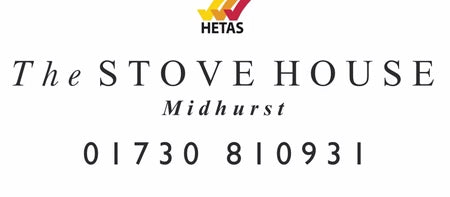Are Wood Burning Stoves To Be Banned?
There are 2 main factors to answer this question and put an end to this myth.
Are Wood Burning Stoves To Be Banned?
1) The Appliance
Although many news headlines are focusing on wood-burning stoves, Bruce Allen, chief executive of Hetas, the not-for-profit body that approves fuel and installation standards, says 'open fires produce the bigger problem'. He continues to say that 'one of the newest models of stoves used to burn dry wood will produce a fraction of the particulates of an open fire burning wet logs'.

The government has also noted this in documents, meaning open fires are most at risk. "The message we're putting out, with the Government, is to burn the right wood on the right appliance," says Dennis Milligan, from the Stove Industry Alliance. "Then, there'll be a progressive improvement in emissions."

Milligan continues to say, "if your stove is 10 years old or more, you should seriously think about replacing it. Stoves available on the market now release 90 per cent fewer emissions than open fires and 80 per cent fewer than the stoves of 10 years ago, he adds, meaning new owners get more heat for their money.

Michael Gove, the Secretary of State for Environment says the new rules will "cut pollution and save lives", by helping reduce harmful emissions and improve the air we breathe. The Government are banning the sale of stoves that don't meet environmental standards, encouraging the sale of cleaner wood and asking those who own older, less green stoves to consider upgrading. The Government has also introduced a certification for stoves that meet green standards. These appliances are now available in our store and are labelled with an "ecodesign" sticker and have improved air circulation that burns more cleanly. See a selection of these stoves here.
Cheap stoves found on the internet without a showroom and poor quality fuel found on garage forecourts are all to be a thing of the past.
2) The fuel
Experts say the burning of wet or unseasoned wood and smoky solid fuels is the main problem. Burning wet wood is inefficient as it demands a lot of heat to boil off the water before the fuel can give out the proper level of heat to the room, hot water or heating systems. In turn, this creates a lot of smoke which damages the chimney and blackens the appliance and contributes to air pollution. Dry wood that has been properly sourced and seasoned means it produces fewer particulates, more heat efficiency and less maintenance – chimneys are less likely to block and will remain easier to sweep. Properly seasoned wood should have a moisture content of 20% or less plus you burn less fuel on a wood burner than you do on a stove.

"The best thing to do if you have a stove is to ensure you're burning dry wood," says Milligan. "It will cut the emissions and give you more heat." You can buy kiln dried wood with low moisture content of less than 20% here.

